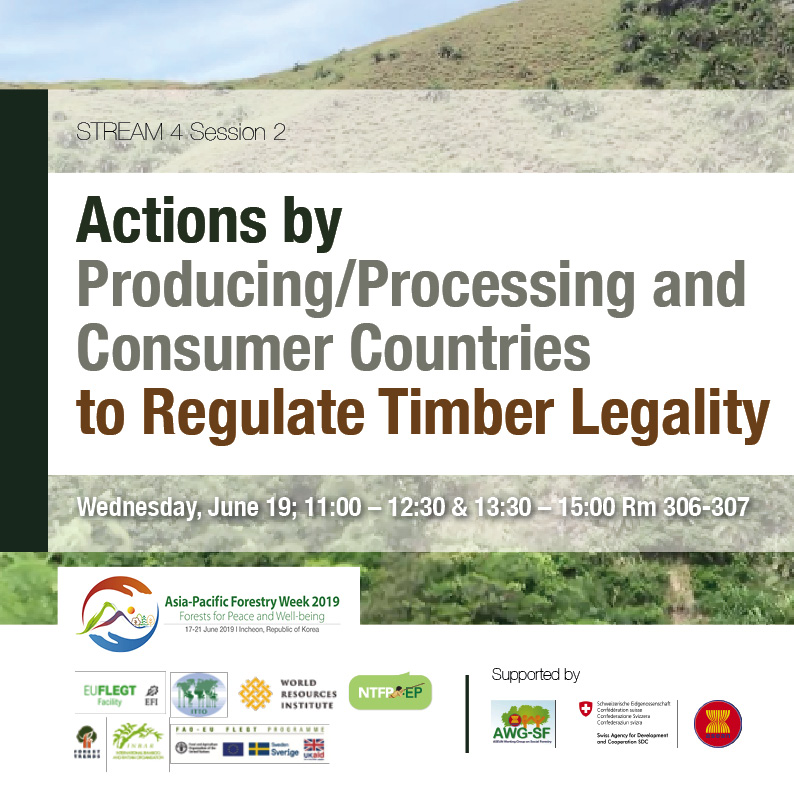Actions by producing/processing and consumer countries to regulate timber legality #APFW2019
June 30, 2019
The link between the supply and demand-sides’ measures for the legality and sustainability of the forest products trade remains to be an inextricable component to ensure the sustainability of the forestry sector. All over the Asia-Pacific region, efforts undertaken by producing and processing countries to improve forest governance and make their forest sector legal and more sustainable. As a response, markets are complementing and responding to the actions of the producing countries.
SESSION HIGHLIGHTS AND RECOMMENDATIONS
- Illegal logging remains the largest single category of environmental crime, degrading forests, eroding governance and the rule of law, and negatively affecting local communities.
- As trade in timber increases, forest-related crime becomes increasingly transnational and requires increased international cooperation in law enforcement and information exchange.
- Many Asia Pacific countries are taking steps to put in place timber legality measures, at the national level, within regional bodies like ASEAN, international fora like CITES and UNODC, and in cooperation with trading partners such as the EU FLEGT process.
- Suppressing illegal logging requires action at all parts of the supply chain, by producer, processing and consumer countries.
- Countries in the region increasingly wear multiple “hats” as producers, consumers, and processors of wood and forest products.
- Firm legal measures that include robust due diligence measures and meaningful sanctions related to imports from third countries – not just domestically-source timber – are a key foundation for effective timber legality measures.
- Voluntary measures, like certification systems such as FSC and PEFC, can complement timber legality measures by governments, and can and should be harmonized to optimize synergies.
- Governments need to both pressure the private sector to increase their due diligence (through legally binding measures), and at the same time provide capacity-building support to the private sector related to legality compliance, especially for SMEs.
- Independent monitoring by civil society organization, and transparency of information by governments and business, are essential parts of a robust timber legality assurance system.
- Innovative technologies (remote sensing, traceability systems, wood ID, etc.) can be useful and cost-effective supports for timber legality assurance systems but must be “fit for purpose” and appropriate for a country’s needs and capacities.
RETURN TO LISTING
